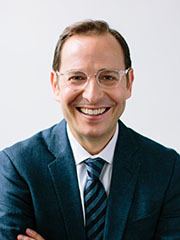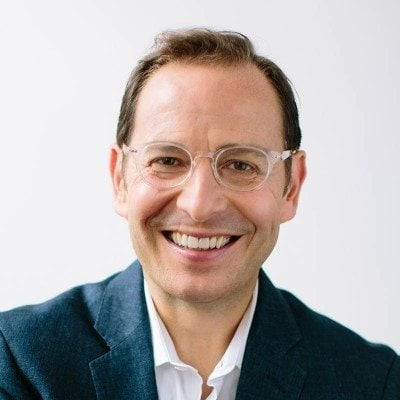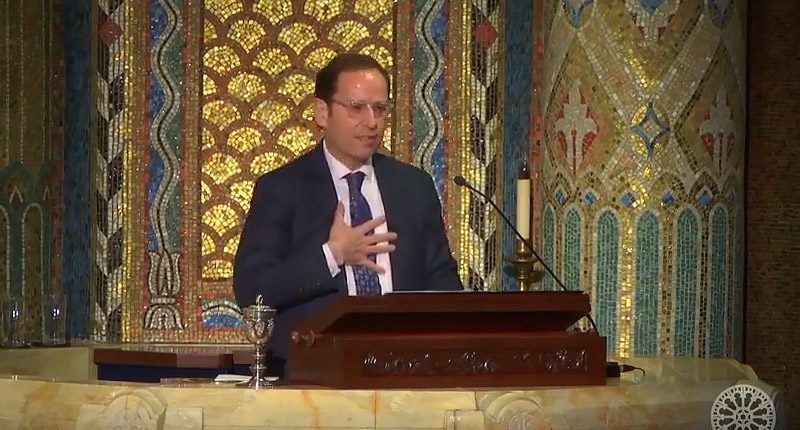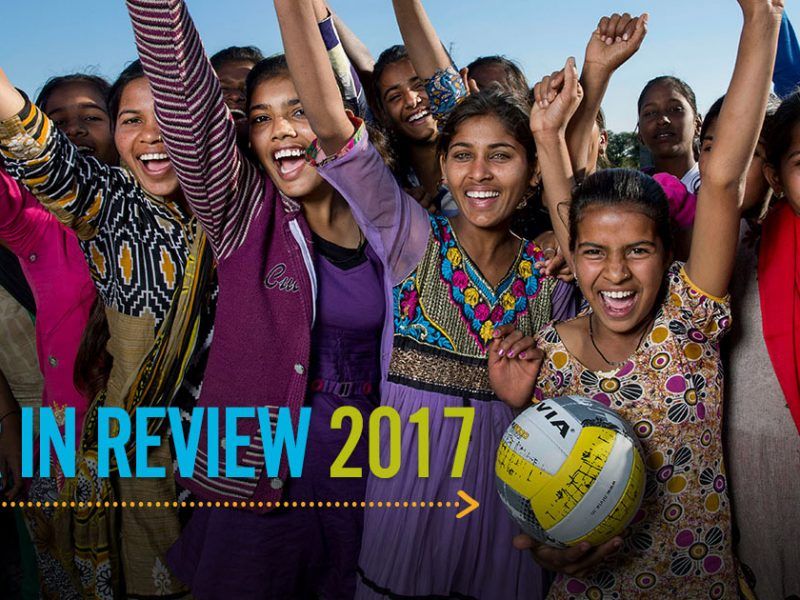In Cambodia and Burma, hardline heads of state are suffocating the free press. Leaders across Latin America are tearing down the structures that support their people’s civil rights, brick by brick. When I think of the significant victories that have been won by the activists AJWS supports around the globe, I know these battles are fought with patience, immense strength and bravery.
But there is a new factor at play in the fight to protect the dignity of people worldwide: the current American government’s and our president’s approach to human rights.
I’ve spent a lot of time speaking with the activists we support around the world lately, listening to their grave concerns. For so many of them, our government has presented a new set of challenges above and beyond those they routinely experience. Tragically, the Trump administration is encouraging authoritarian leaders around the world to indulge their baser instincts—and many of our grantee partners and their communities are feeling the repercussions firsthand.
At home, we’ve watched the president attempt to break down the credibility of our free press. Around the world, we see leaders transforming his words into brutal action. Just last month in Burma, two Reuters journalists were sentenced to seven years in prison for their courageous reporting of the Burmese military’s atrocities against the Muslim Rohingya minority. The sentence was announced after months of Burmese authorities calling Western coverage of the crisis “fake news”—drawing directly from our president’s lexicon.
In Cambodia, Prime Minister Hun Sen has taken cues from Trump’s “America First” approach to forge “Peace First,” a harsh new policy through which ‘peace’ is achieved by punishing voices of dissent. Beginning in 2017, journalists critical of the state have been harassed and arrested, pushing many to seek asylum elsewhere. Many of Cambodia’s leading newspapers and radio stations have been shut down or taken over by companies allied with Sen. The country’s free press is being forced into hiding.
Guatemalan human rights activist Claudia Samayoa, who founded Unidad de Defensores y Defensoras de Derechos Humanos en Guatemala (UDEFEGUA), said it best when she told me during a recent visit to New York, “What Trump is doing in his own country is emboldening leaders to repeat his actions elsewhere. It’s creating an echo chamber, and the volume is getting louder. Trump thinks he’s making a stronger, bigger America, but he is making the rest of the world smaller and weaker.”
Few examples of our president’s influence alarm me more than what’s happening in Claudia’s country. This summer, Guatemalan President Jimmy Morales ousted a UN commission charged with investigating corruption. The commission—called CICIG—had been making significant progress for years to restore justice to Guatemala after decades of violent conflict and corrupt politics. But on August 31, Morales announced he would shut down the commission after it began probing his own family for campaign finance fraud. He declared himself above the rule of law, and tens of thousands of citizens took to the streets in protest. They were met with a show of sheer military force: Guatemala City was circled by the government’s armored vehicles, which had been gifted to Guatemala, only months before, by the Trump administration.
As Claudia told me, “What is happening in the U.S. is having real implications all over the world.”
With the support of AJWS, UDEFEGUA protects Guatemalans speaking out against human rights violations, whether they are testifying in court or leading public protests. Claudia and her team are enduring threats and intimidation from police and government authorities—but they refuse to back down.
Our grantees are now, more than ever before, fighting on the frontlines of a battle for human rights against leaders bent on power and emboldened by the messages of the U.S. government. And yet I know they won’t waver. In those same conversations with our grantees, I hear their courage, determination and their renewed commitment to create a more just world.
In Burma, AJWS grantee Progressive Voice is advocating for equality and justice for the country’s many religious and ethnic minorities that have faced brutal persecution—including the 700,000 Rohingya refugees who were forced to flee their homes when the military launched a vicious, murderous campaign just one year ago. While today thousands of Rohingya people remain in refugee camps in Bangladesh, Progressive Voice is working courageously to hold the military accountable for crimes against humanity, bringing the voices of ethnic minorities to international platforms like the UN Human Rights Council.
Our team spoke recently with Aung Khaing Min, Progressive Voice’s Executive Director. He believes that the longstanding persecution of the Rohingya in Burma has only intensified with Trump in power.
“I think the ‘Muslim ban’ of the U.S. gives even more credence to this idea that Muslims [like the Rohingya] are an existential threat to our country, adding to a narrative of terrorism among people here. And that just brings more nationalism and hate speech,” he told us. “When Trump rejects globalism, he’s also legitimizing the idea in Burma that the treatment of the Rohingya is an internal affair—that other countries shouldn’t interfere.”
As Jews, we know from our own history that silence simply isn’t an option when human lives are at stake. When human rights are trampled anywhere in the world, it is our duty to act. As we renew our commitment to tikkun olam—repairing the world—and to the rights and freedoms articulated in the Universal Declaration of Human Rights, I’m reminded that the United States I love, a land that welcomed me as an immigrant decades ago, does not condone oppression or diminish civil rights abroad. I have faith that our country will once again be an ally for human rights across the world.
But, right now, we must work harder than ever to support our grantees as they face challenges—whether they arise from their own country or ours.

Robert Bank is President and CEO of American Jewish World Service, the leading Jewish organization working to promote human rights in Africa, Asia, Latin America and the Caribbean. Robert has spent his career championing human rights as an attorney, activist and leader. He joined AJWS as Executive Vice President in 2009 and previously served in New York’s municipal government and in the leadership of GMHC—one of the world’s leading organizations combatting HIV/AIDS. Robert has been honored with GMHC’s Lifetime Achievement Award and the Partners in Justice Award from AVODAH: The Jewish Service Corps.






